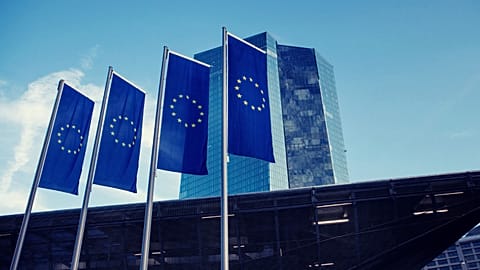In its annual Life Trends report, Accenture Song analysts found businesses are sacrificing “customer obsession” to protect profits.
A cost of living crisis has hit Europeans in a number of countries in the past year, with record levels of inflation driving up prices and squeezing household budgets. Businesses have also had to adapt - and according to Accenture Song analysts, they have ushered in an age of “shrinkflation” and “skimpflation”.
The creative agency for the global consultancy firm Accenture has been assessing the state of the consumer-business relationship in its annual Life Trends report, highlighting how businesses are trying to cut costs and protect profits despite a difficult economic environment.
The report details how business cost-cutting means a worse customer experience. Around 37 per cent of people surveyed said they thought companies were prioritising profits over customer experience, while 40 per cent of chief experience officers (CXO) said they plan to increase prices to pass increases in costs onto customers.
This cost-cutting can come in the form of a loss of quality or quantity in products, with many brands being accused of “shrinkflation”, where a product gets smaller while retaining the same price. Another buzzword that has recently come into prominence is “skimplation”, in which companies reduce the quality of their products, be that by using inferior ingredients, or by using cheaper manufacturing methods or materials.
“You notice they put less crisps in a packet which I think is robbery,” said one respondent from France. Another said of restaurants and stores: “When they lower the quality but keep the price the same, I simply stop going there.”
On top of a loss of quality or reduction in size of products, consumers have highlighted the general decline of customer service. Whereas before good customer service was crucial for building a loyal customer base, some companies are sacrificing this to keep costs down.
A third of respondents say it has been hard to get assistance or even reach customer service representatives in the past year. Accenture Song estimates the potential revenue loss for businesses for failing to manage complaints properly could reach $887 billion (€842 billion), up from $494 billion (€469 billion) in 2020.
AI moving search from ‘transactional to personal’
The rollout of generative AI tools like ChatGPT and Bard - chatbots trained on massive amounts of data which are able to have human-like conversations - means machines can “interpret people in finer detail, unlocking new behaviours, attitudes, and expectations for their digital interactions”.
This will affect how brands interact with customers, the report argues.
For example, their survey found less than a year after the launch of ChatGPT almost 13 per cent of people who have tried that technology said they would use this sort of tool as their main method of planning a holiday.
Companies are already trying to tie their services in with this new technology, with Instacart letting people place orders from grocery stores using ChatGPT, and Expedia using it to help build elements of trips.
With 77 per cent of people familiar with conversational AI, this is a technology with mass cultural awareness.
Generative AI is upgrading people’s experience of the internet from transactional to personal; large language models (LLMs) are being used to stage intelligent, two-way conversations, giving people solutions to “I want to” queries, rather than simply “I want a” requests.
Nearly half (42 per cent) of consumers would be comfortable using conversational AI like ChatGPT for product recommendations, completing tasks at work (44 per cent) and wellness and healthcare advice (33 per cent). This technology will eventually change most of the interfaces we use. Brands will try to use that understanding to shape hyper-relevant products, services and experiences, while smart brands will go beyond, into responsive brand development.
David Droga, CEO of Accenture Song, highlighted how humans are now in some ways in competition with generative AI tools, detailing how he’s preparing to give a speech.
Of the people surveyed, 42 per cent said they would be comfortable using conversational AI’s for product recommendations, with 44 per cent saying they would use it to complete tasks at work.
Ultimately, the report argues that this technology is going to change most of the internet-based interfaces people use, and brands will be working to quickly adopt it in “hyper-relevant products, services and experiences”.
People turning off from tech
While people are adopting new technology like generative AI tools, others are actively trying to turn away from it.
With 31 per cent saying constant notifications are “controlling their use of personal tech”, many are trying to reduce the hold technology has over them.
One respondent said “I limit time spent especially on my phone, because I was out of control. I overused it and it affected me physically - I had to see an ophthalmologist and learnt my eyes were tired.”
A third of users are removing notifications, a fifth are setting limits on screen time, and a quarter are removing apps and devices altogether from their lives.


















